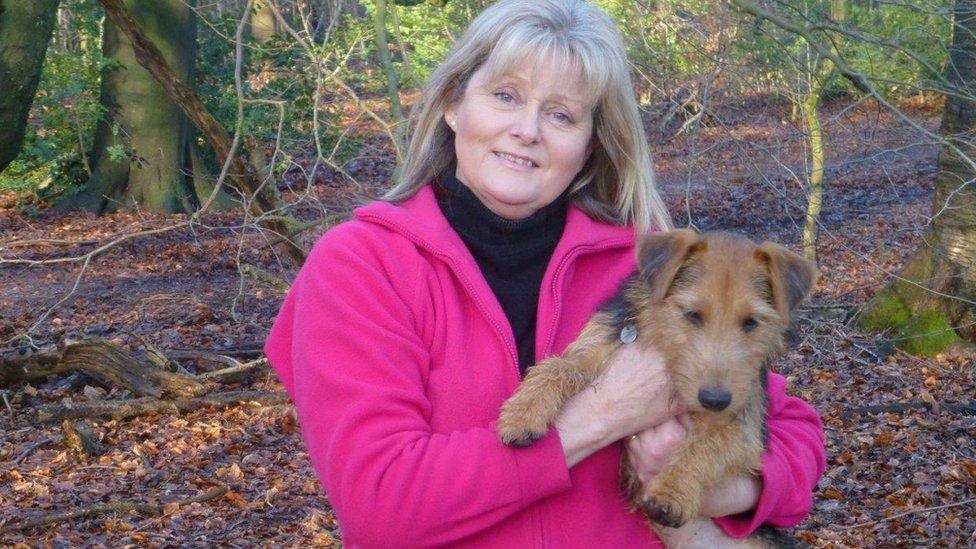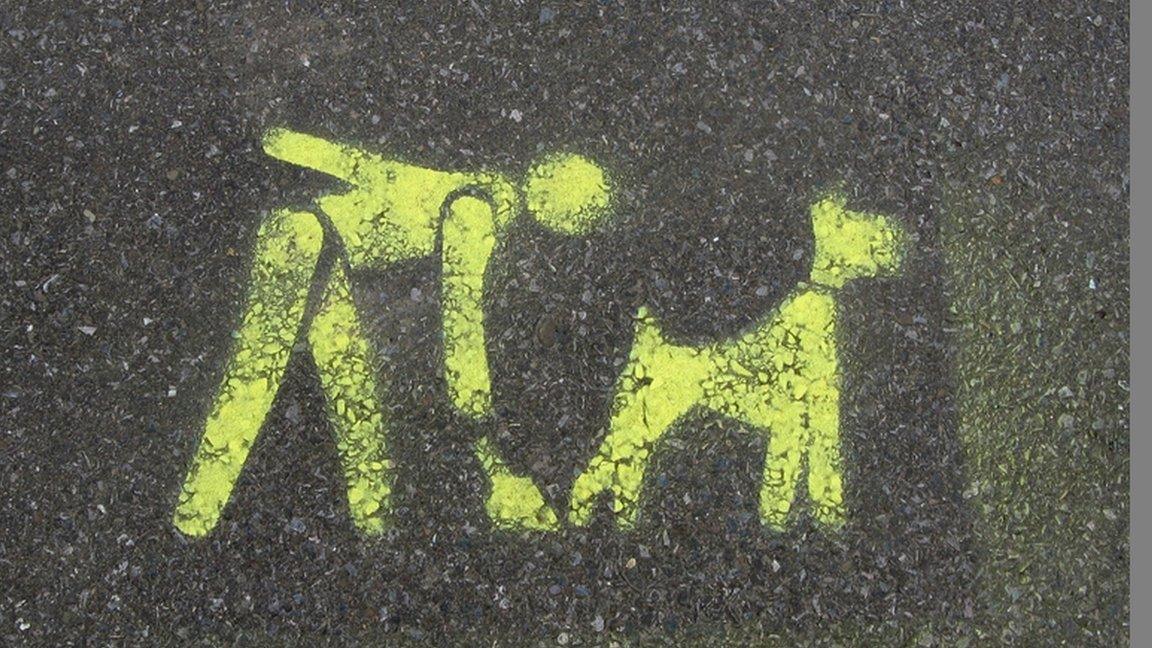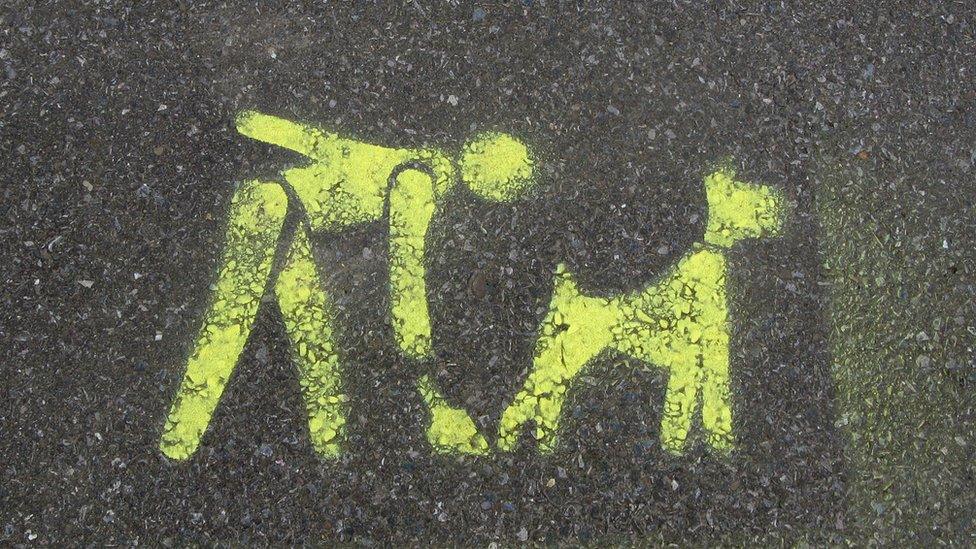'Don't bag up dog poo in countryside', MP urges owners
- Published

Anne Main with her dog Sam
Dog walkers are being urged not to bag up their pet's poo in the countryside - but to use a stick and flick it into the undergrowth instead.
Conservative MP Anne Main advocated the method during a Westminster debate as a way of reducing the number of plastic bags blighting the countryside.
Mrs Main says better signage is needed at the entrance of parks and open spaces so dog owners know what to do.
She said the practice of hanging poo-filled bags from trees was "rampant".
BBC research found that local authorities in England and Wales received some 73,824 complaints about dog fouling in 2014-15. Various initiatives have been tried to tackle the problem in urban areas.
Mrs Main, MP for St Albans and the owner of a three-year old lakeland jack russell terrier called Sam, says the menace of poo-filled bags in the countryside "is a massive problem" that is polluting the environment.
"Like many people, I like to walk my dog out in the countryside, parks and in woodland, but over the last few years I've noticed an increasing number of dog poo bags hanging off bushes, trees and railings - and it's disgusting," she said.
"People think it's the right thing to do to pick it up, but when they find there aren't any bins, they jettison the poo-bag into the undergrowth or lob it over a garden fence where animals can eat them, children pick them up or cyclists ride into them."
Mrs Main, who raised the issue during a Westminster Hall debate on Tuesday, says many dog walkers start off with the best intentions, by leaving a bag in a tree on a track to pick up on the way home - but then forget to collect it.
"We have to work with human nature," she said. "People are not going to carry a dollop of dog poo on a three hour walk - and you are not going to find a bin in Ashdown Forest.
'Poo strategy'
She hopes ministers will press for better signage at the entrance to forest areas and parks with advice on dog poo disposal.
She also thinks the Forestry Commission-backed campaign for dog walkers to use a "stick and flick" the mess off the pathway and into the undergrowth, or cover it with leaves, is a more effective way of removing the mess.
Keep Britain Tidy estimates there are more than eight million dogs in the UK producing more than 1,000 tonnes of mess every day.
Tory MP: Government needs 'pragmatic poo strategy'
Speaking during Tuesday's debate, Ms Main called for a "pragmatic poo strategy", suggesting the amount of dog excrement produced every year was equivalent to the weight of the Empire State Building in New York and five times that of St Paul's Cathedral.
She acknowledged the situation was different in Scotland - where there are separate penalties for failing to clear up dog mess - but said consideration should be given to revising the Scottish Outdoor Access Code to give added protection to farm and wild animals.
Responding for the government, Communities minister Marcus Jones said the majority of dog owners were very careful and cleared up after their pets but a "small minority" were either irresponsible or ignorant about the risks of failing to do so.
"We should be absolutely clear," he said. "This is disgusting, anti-social and dangerous to human health and other animals. We should at every turn encourage people to act responsibly, pick up after them and if there is no bin take it home."
He said different approaches are being tried out in other areas, including the launch of poo bag dispensers in Aberdeen - and a £100 fine for dog walkers failing to carry poo bags in Stoke.
While there has been a reduction in dog fouling in recent years, a recent survey of more than 10,000 sites found dog mess left in 7% of places.
Anyone who fails to clear up after their dog can be issued with a fixed penalty notice. If the case goes to court, this could cost the owner or person in charge of the animal up to £1,000.
The Dogs Trust advises dog owners to use public litter bins to dispose of dog mess when there are no specific dog waste bins available.
- Published1 January 2015

- Published23 March 2016
